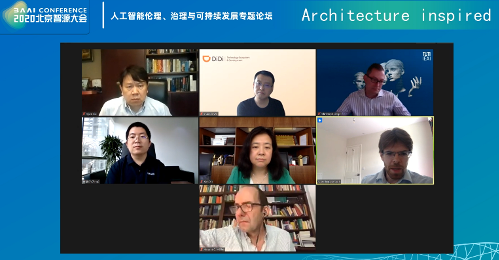Artificial Intelligence: Development Encounters Ethical Challenges And Requires The Escort Of "ethical Navigators"
Artificial Intelligence: Development Encounters Ethical Challenges And Requires The Escort Of "ethical Navigators"
[The development of artificial intelligence brings ethical challenges, and the need for "ethical navigators" to escort is highlighted] Artificial intelligence technology is rapidly breaking through the boundaries of cognition and application, reshaping social structure and lifestyle. Large model iteration, generative content explosion, and autonomous system maturity demonstrate its development momentum.
[The development of artificial intelligence brings ethical challenges, and the need for "ethical navigators" to escort is highlighted] Artificial intelligence technology is rapidly breaking through the boundaries of cognition and application, reshaping social structure and lifestyle. Large model iteration, generative content explosion, and autonomous system maturity demonstrate its development momentum. However, this technological wave also brings ethical challenges and practical worries when creating value. The "black box" of algorithms makes it difficult to trace the source of decisions and clarify responsibilities; biases in data and models are amplified, highlighting the urgency of social fairness governance; data flow threatens personal privacy. The characteristics of AI challenge traditional ethical governance mechanisms. Current legal regulations are lagging behind and industry self-discipline is imperfect. "Technology first, ethics second" has led to accumulation of risks. To ensure that artificial intelligence benefits mankind, a more proactive, professional and dynamic governance mechanism needs to be introduced. The “ethical navigator” emerged as the times require. It is not a development speed bump, but the key to charting the course and avoiding risks. It is the institutional necessity and safety valve to achieve the development goals of artificial intelligence. The development of artificial intelligence triggers many ethical dilemmas. The essential characteristics of the system are the source of endogenous risks. Decision-making is difficult to explain, responsibility is ambiguous, and independent decision-making faces value judgment problems. Strong scale effects amplify social vulnerability, and data and algorithm bias threaten fairness and justice. Forgery incidents also shake the foundation of social trust. “Ethics Navigators” are responsible for managing and avoiding ethical risks. Its functions include risk assessment, dynamic monitoring, interest coordination and ethics education. Predict risks in the technical design stage, continue to supervise after deployment, coordinate relationships with multiple stakeholders, popularize ethical knowledge, prevent risks, and ensure sustainable development. In order to deal with ethical challenges, a "three-dimensional escort network" needs to be built. Organizational embedded navigators focus on internal micro-operations of the enterprise to identify and avoid risks; independent third-party navigators solve the deficiencies of the embedded model and provide professional supervision and guidance; transnational collaborative navigators respond to cross-border ethical challenges and coordinate global ethical principles. The three models are not exclusive, but form a governance structure with hierarchical response and complementary advantages. Multiple subjects share governance responsibilities to achieve a dynamic balance between innovation and the bottom line of human value. Constructing an ethical governance mechanism for artificial intelligence can ensure technological safety and release innovation momentum.
This article is generated by AI algorithm and is for reference only. It does not involve investment advice. Use at your own risk.





